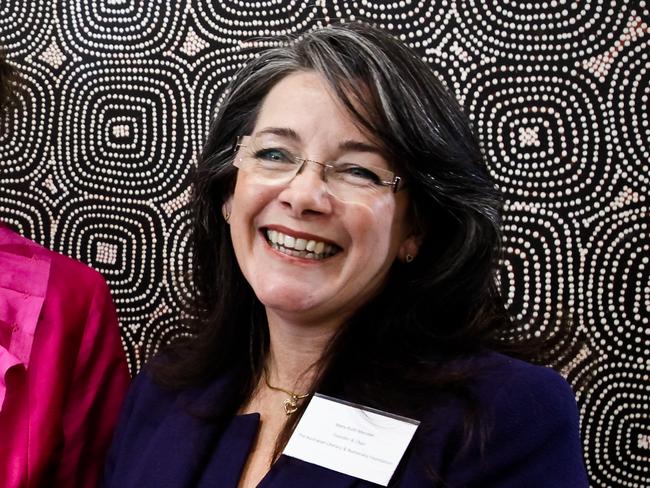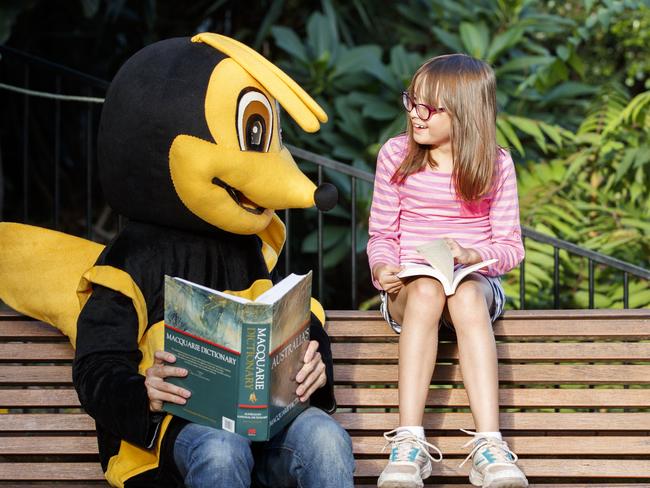Australian adults told not to fear that ‘text speak’ is killing off children’s literacy skills
Many adults fear the rise of “text spelling” will harm children’s formal literacy skills, but young people are showing they can easily switch between language modes.

National
Don't miss out on the headlines from National. Followed categories will be added to My News.
Adult Australians have been assured that young people can move easily between “text speak” and the more formal language styles and spelling they will need in later life and the workplace.
Australian Literacy and Numeracy Foundation executive director Mary-Ruth Mendel said most young people were able to easily recognise when informal and formal spelling and language is required.
“Young people are extremely dexterous and actively switch between text-speak and formal language depending on the context,” Ms Mendel said.

“It is important to debunk the myth that informal language is just poor formal language. When young people abbreviate words or incorporate numbers into their texts or social media posts, they are participating in an evolving culture of online language that is, by nature, separate from school or formal settings.
“The meaning of a text is not lost through use of informal language. If it is lost on you, then that suggests an issue of comprehension rather than an innate lack of clarity in the text itself,” Ms Mendel said.

She said children are communicating effectively and organically with one another through informal text language, and have been doing so for decades.
“The challenge remains, as always, to continue to improve their formal language skills,” she said.

“I asked Neriah Chatterton, who is 13 years old and in her first year of high school, whether she thinks it is difficult to switch between formal and informal language in the modern world.
“She replied: ‘Imma keep it real! Kidz these dayz r v good @ text spellg n can switch from textg 2 spellg in formal settings. Howeva it is important 4 them 2 b able 2 pay attn to formal spellg bcos it takes a little longer 2 learn how 2. This will help them in the long term wen they r @ uni or work. Work n afta schl study is diff. We can do both!’”
One young Australian author who already appreciates the need for formal spelling is Pearl Lenahan, 7, from Townsville who had her first book The Flood published last year.

The Grade Two student said she really enjoyed spelling and writing and challenging herself to learn new words in her story about the recent Townsville flood crisis.
“Spelling is important to communicate and tell people how you are feeling,” Pearl said.
She added that learning how to spell and write allows children and adults to communicate with the messages they intend without being misunderstood.
Ms Mendel urged adults and educators to continue expanding children’s formal vocabularies and encouraging accurate spelling of formal English words.
She said programs such as the Prime Minister’s Spelling Bee, being run free by educational website kidsnews.com.au, were useful tools to improve formal spelling skills.

“By practising for spelling bees, children will be encouraged to discover the patterns that make spelling predictable. With regular practice, children can gradually build those recognition skills – week by week, and year by year.
“For example, good spellers know that the four letters /ough/ represent six speech sounds – as in though, through, trough, cough, thought, drought. Regular spelling practice can help children to crack the code, working towards being strong learners and attractive employee candidates.”

PRIME MINISTER’S SPELLING BEE
Free event for students in Years 3-8. Entries now open.
School competition from March 16-26 with state/territory finals in April and National Finals in May.
Great prizes to be won.
Visit kidsnews.com.au/spelling-bee for more details
Originally published as Australian adults told not to fear that ‘text speak’ is killing off children’s literacy skills


